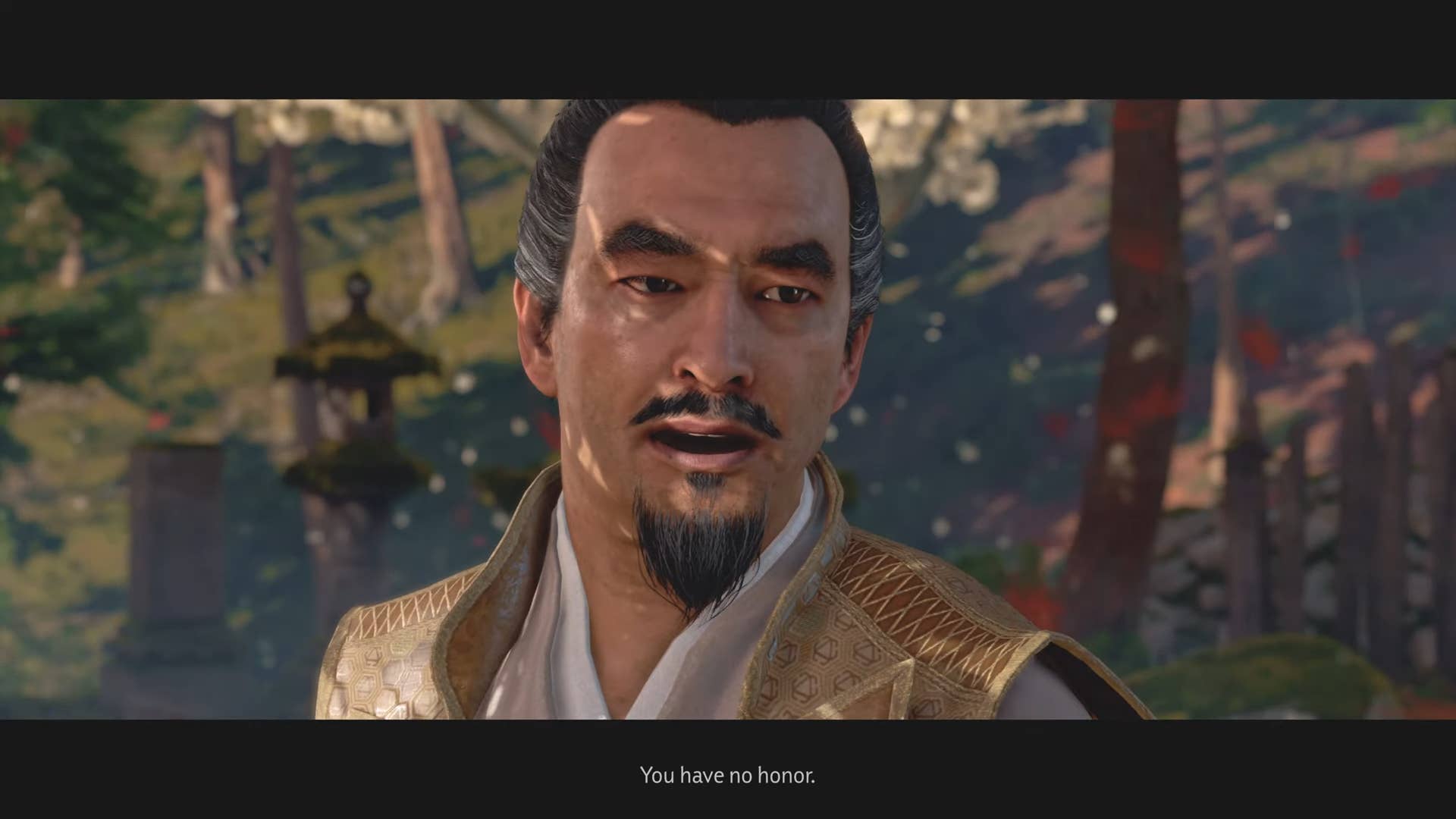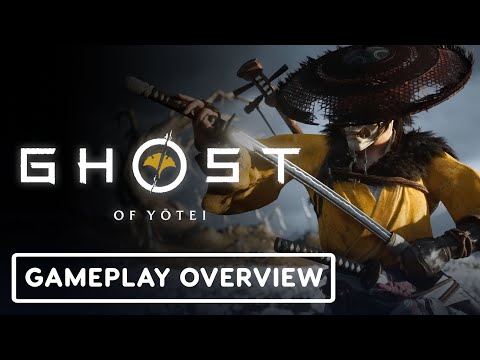Well, that was a bit of a gear shift wasn’t it? After about fifteen minutes of standard new-weapons-and-mechanics chatter in Ghost of Yōtei’s big gameplay deep dive reveal video last night, we moved on to that section I think we probably all saw coming. The one where Sucker Punch starts talking about Japanese film directors and the mud from 13 Assassins and how it’s licensed wind from Akira Kurosawa’s estate. But then– clunk, screeeeeeech: can I interest you in some lo-fi chillhop beats to study/decapitate to?
I’m being a bit sassy with poor Sucker Punch here, who only want to tell you how excited they are about their new game like everyone else. But, listen, I think I can get away with that because in all honesty, like Sucker Punch, I too am a sucker for this stuff. I’m a white guy who’s been to Japan a couple times and – surprise – now has a Google Doc with an excessively detailed Tokyo-and-Kyoto restaurant itinerary on it. I bought a kitchen knife in Asakusa and for a very brief time got really into making little cocktails with flavoured sake. And I have hovered, for the best part of a year, over the Buy button for a nearly two-metre-tall French Grande Kurosawa exhibition poster on Ebay that absolutely would not fit in my living room. In other words: I get it! Samurais are cool; I am a cliché. Guilty as charged.
This is really where the strange conflict of this mini series – Ghost of Tsushima and now Yōtei – comes in. On the one hand, what have we got here? Well, largely a group of earnest nerds making something they really care about, with as much attention and sincerity as they can possibly bring to it, which usually results in something pretty great. That thing, in this case, is also not something to be thought too hard about, at least on the surface. Ghost of Tsushima was ultimately a well-excuted take on a very familiar, middle-of-the-road third-person action game intentionally made for a broad audience. You sneak a bit and stab a bit and fill out a simple skill tree and have an ultimate-slash-rage-mode activated by pressing L3 and R3 together like at least six other contemporary Sony first-party action games. And that’s fine! It’s an action blockbuster movie!
If you believe in meeting things where they are and evaluating games according to what they’re trying to do, then it achieves its own goals very well. Ghost of Tsushima and, we can be fairly certain, Ghost of Yōtei are not High Art, in the same way many of the movies they take such overt inspiration from are for the most part movies; bracingly fun, not-too-serious popcorn joints that are ultimately about making the viewer quietly mutter “hell yeah” to themselves when someone blocks an arrow with a sword. They are exceptional, low-barrier-to-entry entertainment, and needn’t strive to be anything more to be considered great in their own right.
But at the same time, there is this lingering whiff of self-seriousness to these games, which seem to wear their hell yeah menpo over a strictly po face. Tsushima’s protagonist, Jin Sakai, went on and on about his honour to a meme-able degree (even despite that being, as most historians will tell you, not really a thing for actual samurai). The game’s climax played out under weeping red-leaved Japanese maple trees, and completion unlocked a trophy called Mono No Aware. And that Kurosawa Mode – ostensibly a black and white filter with some film grain and audio crackle – is, come on, a bit much. (Again, this is coming from the giant poster muppet here, I’m aware of the hypocrisy!)
This comes back again to the lo-fi beats mode we’re getting in Ghost of Yōtei, which is there because Sucker Punch wanted to “celebrate two other influential directors who have had an impact on the genre as a whole.” Those being 13 Assassins’ Takashi Miike (extra mud!) and the chillhop of Samurai Champloo and Cowboy Beebop director Shinichirō Watanabe. These are homages, but also homages that I might wager a guess don’t totally work in practice. Kurosawa’s style for instance wasn’t about things looking epic while being in black and white, as I’m sure Sucker Punch knows, but movement, in particular camera movement, which becomes difficult to really capture when your game’s camera ultimately moves very strictly with (and by) the player.

Likewise, Miike’s mode brings the camera in closer, Sucker Punch says, in order to deliver “a more intense, raw experience”, which it may well achieve, but probably at the expense of being a practical way to play a game designed to have a camera set further back. The lo-fi chillhop, meanwhile, might actually be fun! I could see myself playing with that for a bit, an admirably unserious way to go about your many hours of grisly cinematic dismemberment.
But the point is that this is all really quite jarring with what Ghost of Yōtei seems to want to be, in another incredibly serious, grim-faced tale of family vengeance set against achingly pretty vista after achingly pretty vista. To put it another way: all this just makes it very difficult to really know how to come at these games. I’ll play Ghost of Yōtei when it comes out later this year, and I will probably love most of it, as I did Tsushima too – in the same way I love a big ol’ Assassin’s Creed, for all their flaws, or a double-bill of, I dunno, Transporter and Transporter 2. I will hopefully be giving it a hell yeah. But it would be much easier to do that if it wasn’t also trying so hard, fawning so breathlessly, stumbling over itself so clumsily to be considered a serious work – a Kurosawa film, in their own terms – at the same time. This is an old inferiority complex video games still seem to have. My advice, as a shameless dweeb, would be to let it go. You’d be much cooler if you stopped trying.

